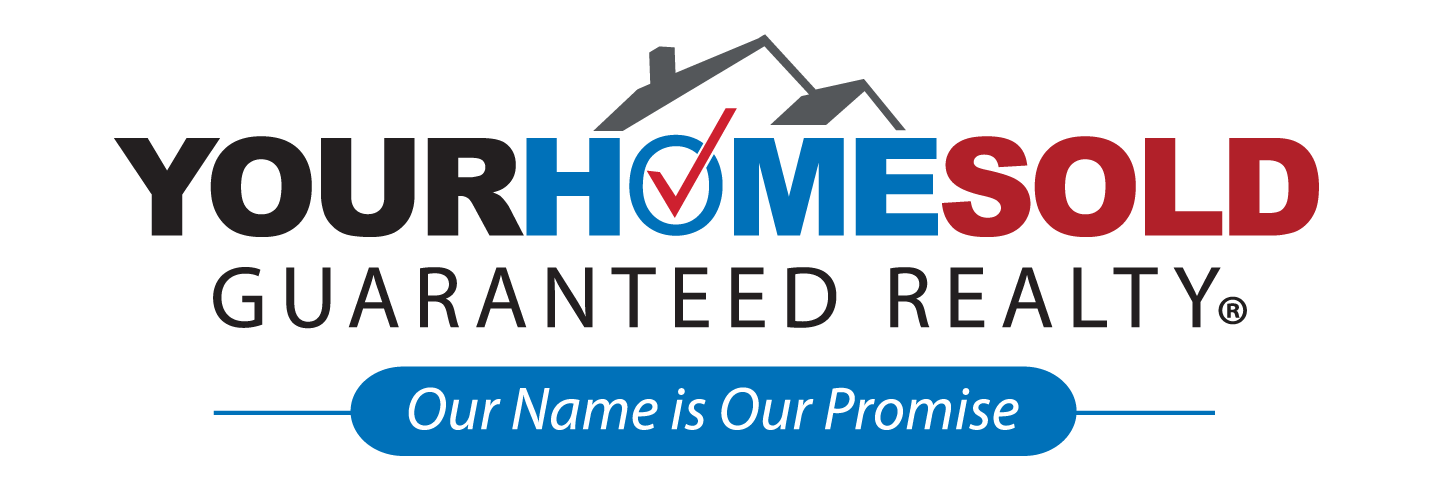If Your Home Doesn't Sell, We'll Buy It - GUARANTEED!*
Selling Your Home Doesn't Have to Be a Hassle

Rick Kendrick
18,705
Buyers in Our Database
5.2%
More Money for Our Customers
1.8 X
Rick Sells Homes Twice as Fast!

How to Sell Your House Without an Agent
And Save the Commission!

27 Quick & Easy Fix Ups to Sell Your Home Fast
And For Top Dollar!

The 9 Step System to Get Your Home Sold Fast
And For Top Dollar!

Rick Has the CASH Offers
You don’t have to wait for a buyer to submit an offer. You choose when you want to sell and when you want to close.

Get Your Home Ready Offer
The no-hassle home fix-up free offer. You benefit from the highest and best offer, always!

Sell Faster as a Certified Pre-Owned Home™
Making your home a YHSGR Rick Kendrick Team Certified Pre-Owned Home gives you a distinct selling advantage.
6 Big Reasons to Call Rick Kendrick Team at Your Home Sold Guaranteed Realty of Florida

Your Home Sold Guaranteed or Rick Will Buy It For Cash*
97.78% of our homes sell the first time they’re listed. So many local sellers are understandably nervous about getting stuck with two houses, so our goal is to remove that worry to give you peace of mind. Your home WILL sell. If not to another buyer, then it will to Rick!*
Rick Has Buyers in Waiting
Rick has more than 18,705 registered buyers in our database who are looking for a home in the area—and waiting to hear that your home is exactly what they’re looking for. There’s nothing better than getting ready to list and finding out you don’t have to—because a buyer for your home is already in our database. Why are you waiting to call? Your home may already be sold!
With Rick, You're More Likely to Sell
Rick Kendrick has been involved in over 1,136 transactions (the average agent sells 2 homes a year). So why would you choose a less experienced team? No matter what your house looks like or how much you’re worried about your "unique" situation, chances are we’ve seen it before... And SOLD it before. Put our proven track record of results to work for you and your home is more likely to sell.
Rick's Homes Sell For More Money
Compare the agents on our team at Your Home Sold Guaranteed Realty to the "average" real estate agent in the area, and the math is indisputable—we sell our homes for 5.2% more in sales price on average. This means real dollars in your pocket that you can use to buy or furnish your new home. On a $520,000 home, 5.2% more is an extra $27,040+ in the bank!
Rick Sells Faster
Maybe you want to sell fast because you don’t like the process. Maybe you have your eye on a new home, and you don’t want to stress about owning two houses at once. Or maybe you just have an urgent need to sell... Whatever the case, we sell homes 1.8 times faster than the average agent.
Ricks Commitment to Client Satisfaction
Rick has collected 100s of testimonials over his career.
Your Referrals Help Families!
For Every Referral That We Receive, A Portion of Our Income Goes to Help South Florida Kids!
Who do you know considering buying or selling a home you could refer to my real estate sales team?
Not only will your Referrals benefit from our award winning service, but we donate a portion of our income on every home sale to Local Charities. It's easy to refer your friends, neighbors, associates or family members considering making a move. We sincerely hope you will tell your friends, family, peers, and co-workers about our services. You'll be doing them (and us) a favor because they too will receive the same excellent service that you have experienced with our home selling team.

Resources

Sellers

Buyers

Agents
TESTIMONIALS
What others are saying
"Best of the Best"
Your Home Sold Guaranteed Realty is the best of the best in the business! They have homes you can’t find online anywhere so as a buyer you have the advantage of beating out all the other buyers!! As a seller you get top dollar for your home because they have all the Buyers and drive up demand for your home!! Who else can do this?
- Tracy

"Professional Marketing"
I often get asked, why as an agent should I work for Your Home Sold Guaranteed Realty. And I tell them this; we are a professional marketing company to help people find the perfect home or help them maximize the equity of their current home. And because of the Your Home Sold Guaranteed name, unique selling proposition, you're going to get more business! So, take a good hard look at YHSGR; it will make a difference in your business life as well as your personal life!
- Bill

FAQ Have questions? We have answers!
Sellers
Why Should I List My Home with Your Home Sold Guaranteed Realty?
The answer is simple. We sell homes faster, for more money—and if for some reason your home DOESN’T sell, we’ll buy it… Guaranteed!*

How Many Buyers is Your Home Sold Guaranteed Realty Currently Working With?
We have more than 18,160 buyers in our database, all of them ready and willing to see if your home matches their needs. Your home may already be sold!

How Does Your Home Sold Guaranteed Realty's "100% Asking Price Guarantee Work?
Because your home may well be your largest asset, selling it is probably one of the most important decisions you will make in your life.
You can sell your home for 100% of asking price providing it is priced correctly and marketed effectively.

Buyers
Does Your Home Sold Guaranteed Realty Offer Any Guarantees for Home Buyers?
Absolutely!
Ask us about our "VIP Buyer Satisfaction Guarantee".
In fact, if you purchase a home through YHSGR and you are not satisfied, we will sell it for free or buy it back!*

How Does Your Home Sold Guaranteed Realty Find Homes for Buyers?
Through our unique home hunter service, we have access to off market properties that aren't easily found online!
Properties like probate sales, divorce sales, foreclosures and others oftentimes represent a great deal for Buyers.

I Own a Home, How Do I Avoid Getting Stuck With Two Homes?
Our unique Guaranteed Sale Program solves this dilemma. This program guarantees the sale of your present home before you take possession of your new one. If your home doesn't sell within an agreed upon timeframe, we will buy it from you for a previously agreed price ensuring that you never get caught in the Real Estate Catch 22.

Agents
Is Your Home Sold Guaranteed Realty Hiring Agents?
Because of our unique marketing methods and proprietary way of doing business, our team continuously has an overflow of buyer and seller prospects to follow up with... and they all want help on buying or selling real estate.
Our System can put you in the very enviable position of assisting these motivated buyer and seller prospects. You see, most of the people who call us day-to-day need an agent to work with.
That’s right, all of the Buyer and Seller prospects call us - our Team does no cold-calling. Our unique lead generation system turns the tables on mind-numbing cold calls.
Right now we are looking for serious, full-time real estate professionals to handle this overflow of prospects.

Why Should I Consider Joining Your Home Sold Guaranteed Realty?
We offer an endless stream of leads and appointments (as many as you can skillfully handle) in exchange for you joining our team.
You Can Increase Your Appointments and Closings -- Literally Overnight!
You can make a lot of money, but more importantly, keep more of it since there are no marketing expenses, no wasted time prospecting and spend your time actually selling homes.
Plus receive leading-edge training on all of our exclusive systems, marketing, and consumer programs.

Does Your Home Sold Guaranteed Offer Any Training?
Your Home Sold Guaranteed Realty University has hundreds of training videos. The very best training in the industry on customer service, closing and negotiating skills.
Powered by Craig Proctor Coaching, Agents who join our team, have access to the latest, most cutting edge systems in real estate.
All of these systems are designed to provide superior service to home buyers and home sellers, creating lifetime customers.

Didn't find an answer to your question?
We are proud to be one of the fastest-growing real estate companies nationwide.
If you're looking to buy or sell a home, Your Home Sold Guaranteed Realty is there for you every step of the way. You can count on knowledgeable agents with PERFORMANCE GUARANTEES that are ready to handle every situation, giving you the peace of mind that you made the perfect choice in a Real Estate Agent and Company!
Your Home Sold Guaranteed Realty and their agents know when you put others first, you will never be second!
It Is Our Mission, To Positively Impact The Lives of People, Through Second Mile Service, Innovative Systems, and Charitable Giving.
COMPANY
RESOURCES
PROPERTY SEARCH
CONTACT
LEGAL

© Copyright 2024. Rick Kendrick - Your Home Sold Guaranteed Realty. All Rights Reserved.
